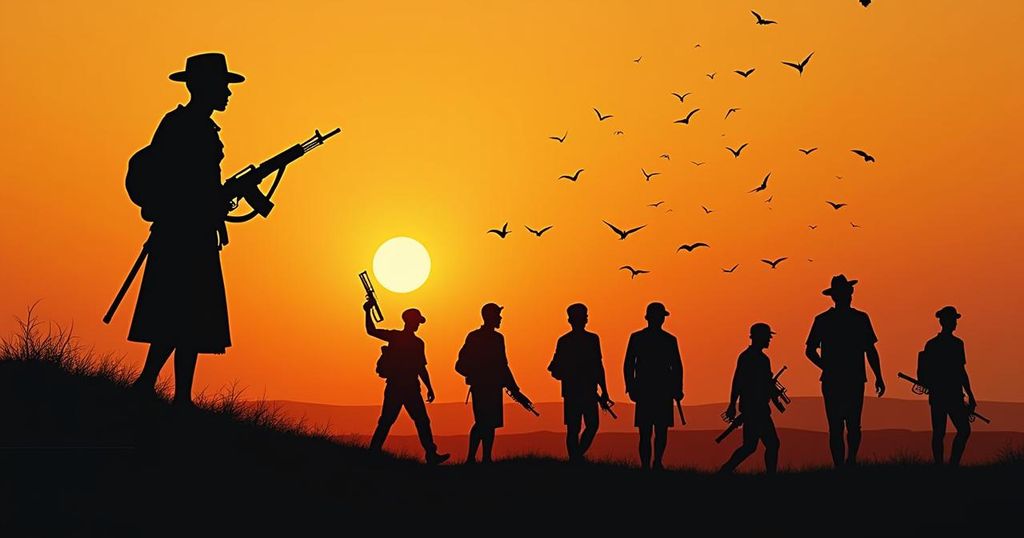The 2020 coup in Mali set off a trend of military takeovers in West and Central Africa, with at least 10 coups recorded since then. The initial coup ended a period of stability and correlated with increased anti-French sentiment, shifting alliances towards Russia while raising concerns regarding the return of military rule in the region. The effectiveness of ECOWAS in stabilizing the area remains in question, as more nations grapple with turmoil and governance challenges.
In August 2020, Mali experienced a military coup that ousted then-President Aboubakar Keita, culminating a series of protests against his government, which was accused of corruption and inadequate responses to armed rebellions. Following the coup, Colonel Assimi Goita became the vice president of a transitional government alongside civilian President Bah Ndaw, however, conflicts between military and civilian leaders soon emerged, leading to a second coup in May 2021 in which Goita assumed control as president. The political instability initiated by the Malian coup sparked a wave of successive military takeovers across the West African region, including countries such as Guinea and Burkina Faso, reflective of a resurgence in military rule reminiscent of the political upheavals of the late 20th century. Critics argue that these developments have eroded the norms of civilian governance established in the preceding years. In the wake of the January 2022 coup in Burkina Faso, led by Lieutenant Colonel Paul-Henro Damiba, and subsequent military upheavals, including those in Niger and Gabon, a notable trend has emerged: a marked shift in public sentiments against former colonial power France, which has been perceived as neocolonial. As a consequence, these nations have increasingly turned towards Russia for military alliances while expelling Western military presence. Amid these transitions, the Economic Community of West African States (ECOWAS) has faced criticism for its ineffective response to the initial Mali coup, which many believe has spurred further instability. This turmoil has led experts to contend that the conditions established by the coup in Mali set a precedent, influencing subsequent military actions in the region and presenting a challenge to the future of democracy in West Africa.
Since the August 2020 coup in Mali, over ten attempts at military takeovers have occurred in West and Central Africa, reflecting a notable shift in the political landscape. The coup ended a lengthy period of relative stability in Mali and signaled the beginning of a disruptive wave of political upheaval across neighboring nations. This regional crisis has roots in historical dissatisfaction with civilian governments, exacerbated by security challenges, economic factors, and public resentment toward former colonial powers. The changing dynamics also involve a shift in international alliances, notably towards Russia, following a perceived failure of Western nations to stabilize the region, prompting calls for a reevaluation of relationships with former colonial powers such as France.
The coup in Mali has had far-reaching impacts that have altered the political landscape of West Africa. It catalyzed a trend toward military rule, marked an increase in instability, and strained relationships with former colonial powers, leading to a realignment towards Russia. The role of ECOWAS stands vital as it struggles to address the permissive environment that allowed these coups to proliferate. Moving forward, the implications of these changes will be critical in shaping the future governance and security landscape of the Sahel region.
Original Source: www.aljazeera.com







